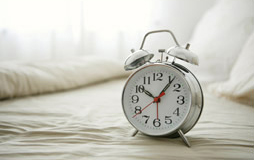MRMC offers a variety of state-of-the-art diagnostic services. From routine lab and x-ray services, to highly technical nuclear medicine or cardiac tests, MRMC provides a trained and friendly staff as well as the latest in equipment to assist your physician in diagnosing illness.
Our Radiology Department offers Computerized Tomography (CT) and Magnetic Resonance Imaging (MRI) which are helpful tests in diagnosing soft tissue problems (such as with cartilage and/or ligaments) and for more severe problems such as stroke, where the brain is scanned. These are painless imaging tests that perform similar studies; however, each test has areas or conditions it is superior at detecting.
Other services offered in our Radiology Department include Mammography, Ultrasound and Nuclear Medicine. Nuclear Medicine can sound very frightening, but it really is a low-risk way to view specific areas of soft tissue, such as your liver, heart or kidneys. A radioisotope, which is specially calibrated for the area of the body in question, is injected (like a regular shot in the arm, not in the part of the body being studied). Once the injection has had time to travel through the body to the specific area, the patient lies on a table and the technologist takes computer pictures, which show us tumors and other abnormalities.
Our Cardio-Pulmonary Department is able to perform a variety of studies that can help diagnose or rule out issues of the heart and lungs. On order of a physician, the department can perform pulmonary function tests to determine if the patient’s lungs are working correctly, as well as other appropriate tests. The District offers Cardiac Caths to diagnose blockage in the heart, stress tests, echo-cardiograms, and doppler studies to diagnose most cardiac conditions.
Sleep Disorder
 Sleep disorders involve any difficulties related to sleeping, including difficulty falling or staying asleep, falling asleep at inappropriate times, excessive total sleep time or abnormal behaviors associated with sleep.
Sleep disorders involve any difficulties related to sleeping, including difficulty falling or staying asleep, falling asleep at inappropriate times, excessive total sleep time or abnormal behaviors associated with sleep.
Tests vary and depend on the specific sleep disorder. A sleep study (polysomnography) may be done.
Call for an appointment with your health care provider if lack of sleep, too much sleep, or unusual sleep behaviors are interfering with daily living. Sleep apnea should be suspected in people who snore loudly, wake frequently to urinate at night, and wake up in the morning unrefreshed. For more on MRMC Sleep Study services, click here.
